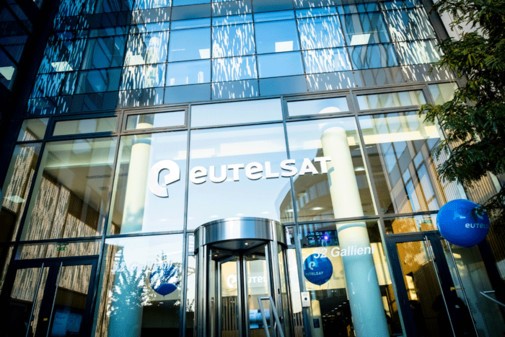Eutelsat questioned on Russian involvement
October 18, 2022
By Chris Forrester

The former prime minister of Estonia, Andrus Ansip, currently a member of the European Parliament and a former vice-president of the European Commission, has written to Eutelsat and asks it to explain its position over Russian revenues, and the shareholding in Eutelsat held by Russia’s own satellite operator. Ansip also questions why Eutelsat is pursuing a relationship with OneWeb which could compromise Europe’s own security.
In his letter to the CEO of Eutelsat, he asks: “In [my positions], I have had first-hand experience with Russia’s aggressive and insidious policy of influence, manipulation and disinformation, and the risks it poses for the security of the European Union. Over the past months, I have followed with great concern the position of Eutelsat in the context of Russia’s war of aggression against Ukraine.”
He continues: “I fail to grasp the so-called ‘neutrality’ adopted by the company while the war has been internationally condemned and is attempting to redesign the security architecture of Europe. In March 2022, 141 countries (out of 193 having a voice at the United Nations) voted in favour of a resolution demanding that Russia immediately end its military operations in Ukraine, reaffirming Ukrainian sovereignty, independence and territorial integrity. More recently, the United Nations General Assembly overwhelmingly condemned Russia’s attempted illegal annexation of four partially occupied regions in Ukraine and called on all countries not to recognise the move, strengthening a diplomatic international isolation of Russia.”
He then argues that that while many companies have suspended or totally curtailed their relationships with Russia, Eutelsat continues with a ‘business as usual’ stance
“Firstly, Eutelsat has continued providing services for the broadcasting of Russian war propaganda in the European Union, in Ukraine, in Russia and beyond, including in Africa. This has been documented by several organisations, in particular the Diderot Committee. By allowing the use of its satellites to broadcast Russian state TV, Eutelsat is therefore directly participating in the massive disinformation campaign designed to divide our European society, but also destabilise our relations with partners such as African countries.”
“Eutelsat has chosen to hide itself behind legal arguments. It is hard for EU citizens, whom I represent, to understand why an EU company, portraying itself as central for Europe’s sovereignty in satellite communication, could act responsibly, take the necessary steps, and put an end to the spreading of disinformation by the Russian state. Several Member States’ authorities, including in the Baltic states, have asked you to act upon these elements. It is time that, as the CEO of Eutelsat, you live up to your responsibilities,” he continues.
“Secondly, Eutelsat has announced it is taking over of OneWeb, a UK-Indian owned company which has worked with Russian authorities. To my understanding, there are now 36 satellites left in the Russian space agency’s custody at a Russian military basis in Baikonur following OneWeb’s decision to suspend the launch of these satellites in light of Russia’s illegal invasion of Ukraine. Therefore, there is a high risk that these 36 satellites are being fully examined, putting the rest of the OneWeb’s constellation (more than 400 satellites in orbit) into a risk of [compromise]. With deep knowledge by Russian authorities on the design and technical specifications of all the satellites of the OneWeb constellation, how can we ensure that such a fleet of satellites does not constitute a risk for our EU citizens, our EU companies and our EU armies?”
Ansip also questions the relationship that Eutelsat has with Russia’s Satellite Communications Company (RSCC), and its shareholding in Eutelsat. “In light of the war in Ukraine, it is important that you state clearly the current relations with this company and whether you are still in business relations with them. I recall that RSCC is the main Russian state operator of communications satellites, which is – according to public information – providing governmental communication services to the Russian state as well as broadcasting services of Russia state TV. It is presented as being directly under the control of the Russian Ministry of Communications”.
He pointedly asks what Eutelsat’s business relationship is with RSCC, and whether Eutelsat is still doing business with RSCC. He continues by demanding that Eutelsat “puts an end” to its participation with RSCC in regard to Russia’s “propaganda war” over and above any sanctions that are in place.
